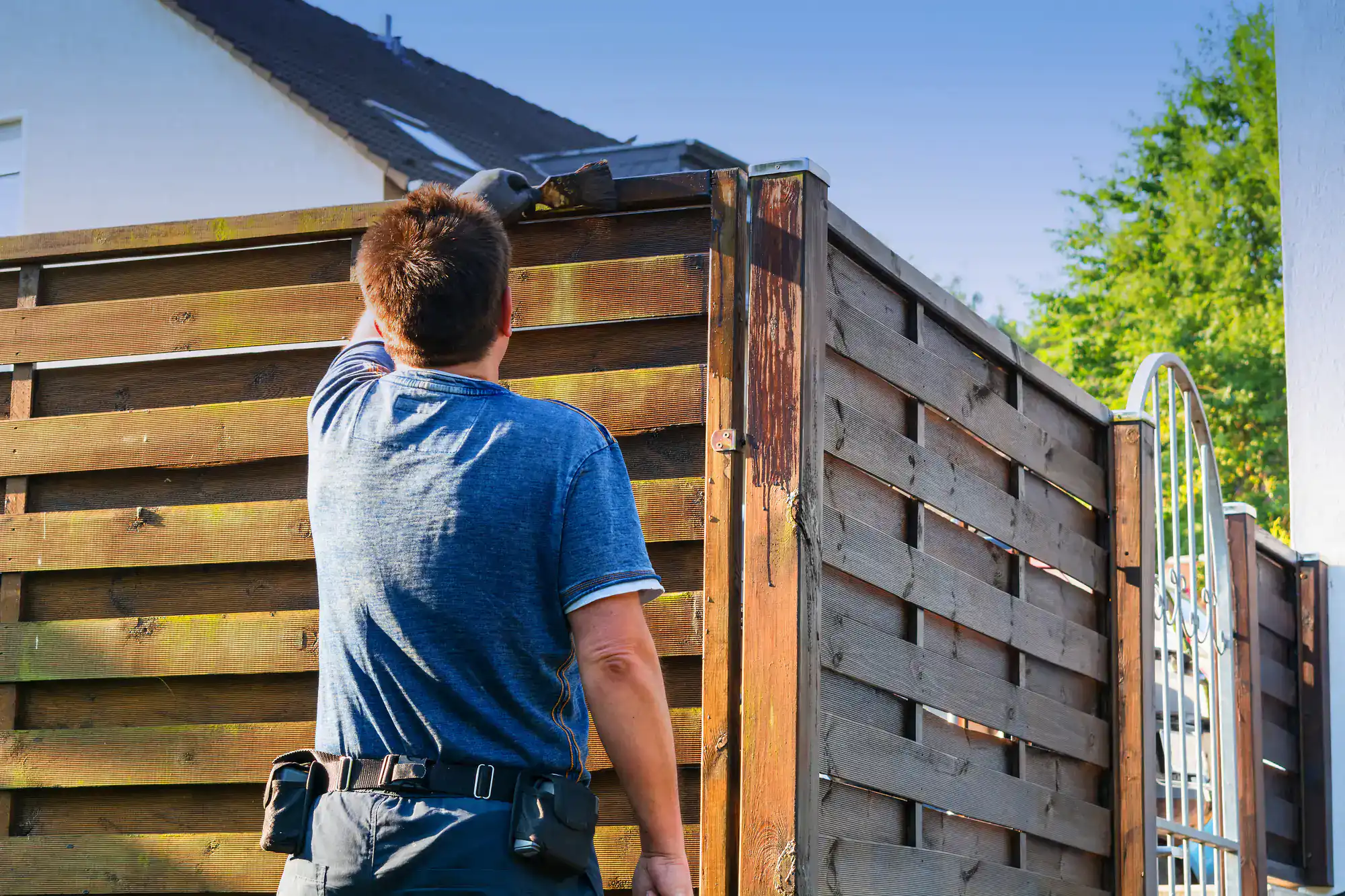
Hear from Our Customers
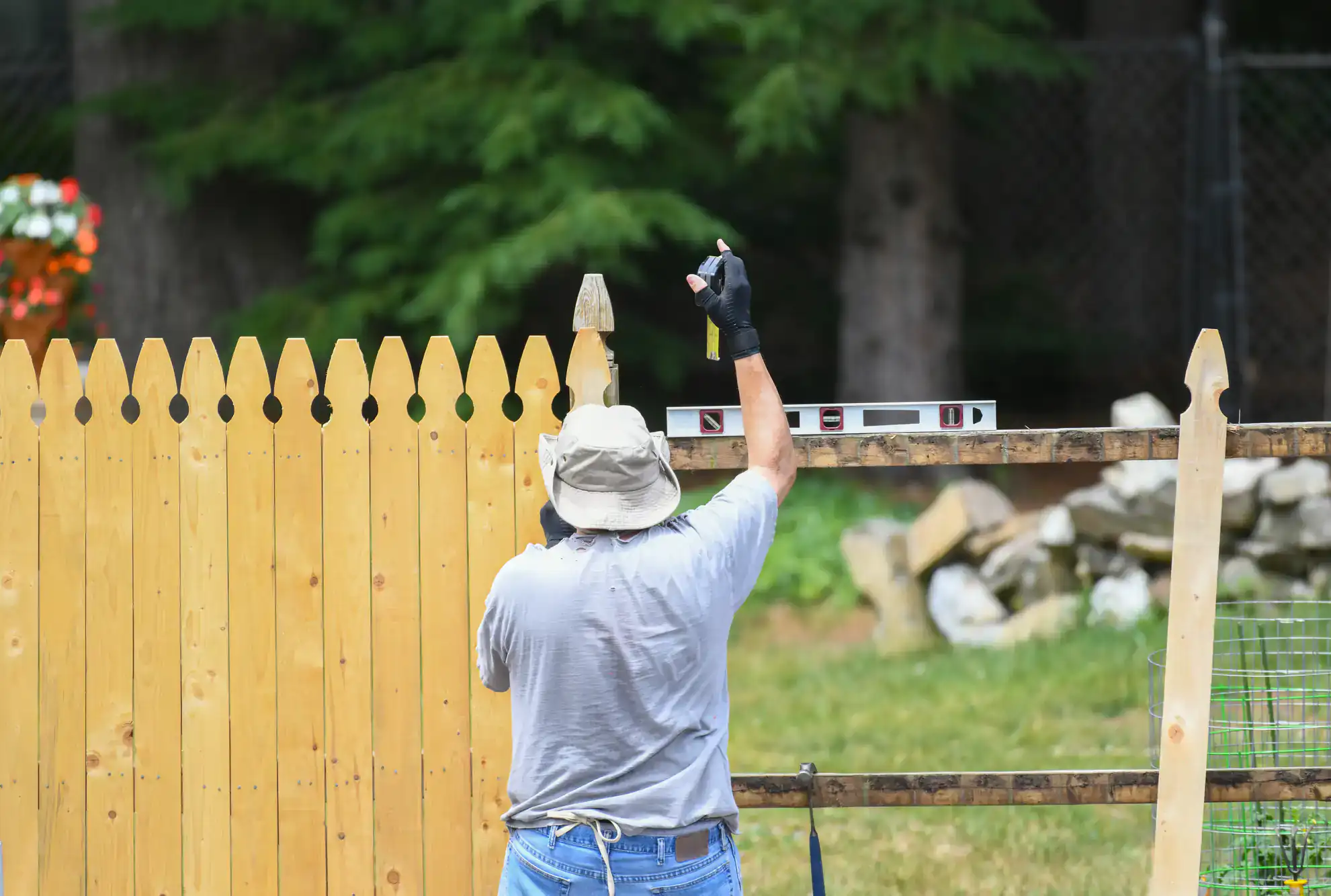
You want your kids and pets safe in your own yard. You want actual privacy when you’re relaxing outside. And you want a fence that looks good doing it.
That’s what happens when fencing is done right. Your property becomes truly yours—protected from wandering eyes, secured from unwanted visitors, and enhanced with the kind of curb appeal that makes neighbors take notice. No more worrying about children or pets wandering off. No more feeling exposed in your own backyard.
The right fence doesn’t just mark boundaries. It creates the safe, private space your family deserves while adding real value to your home.
We’ve been serving Long Island homeowners for over 20 years at Expressway Roofing and Chimney Inc. We’re fully licensed, bonded, and insured—not because we have to be, but because your property deserves that level of protection.
We’ve seen what happens when fencing is done wrong. Cheap materials that warp and fade. Poor installation that leaves gaps and wobbles. Contractors who disappear when problems arise. That’s exactly what we don’t do.
In Yaphank, we understand the local climate challenges—from harsh winters to summer storms. We know which materials hold up and which installation methods prevent the common problems that plague Long Island fencing.
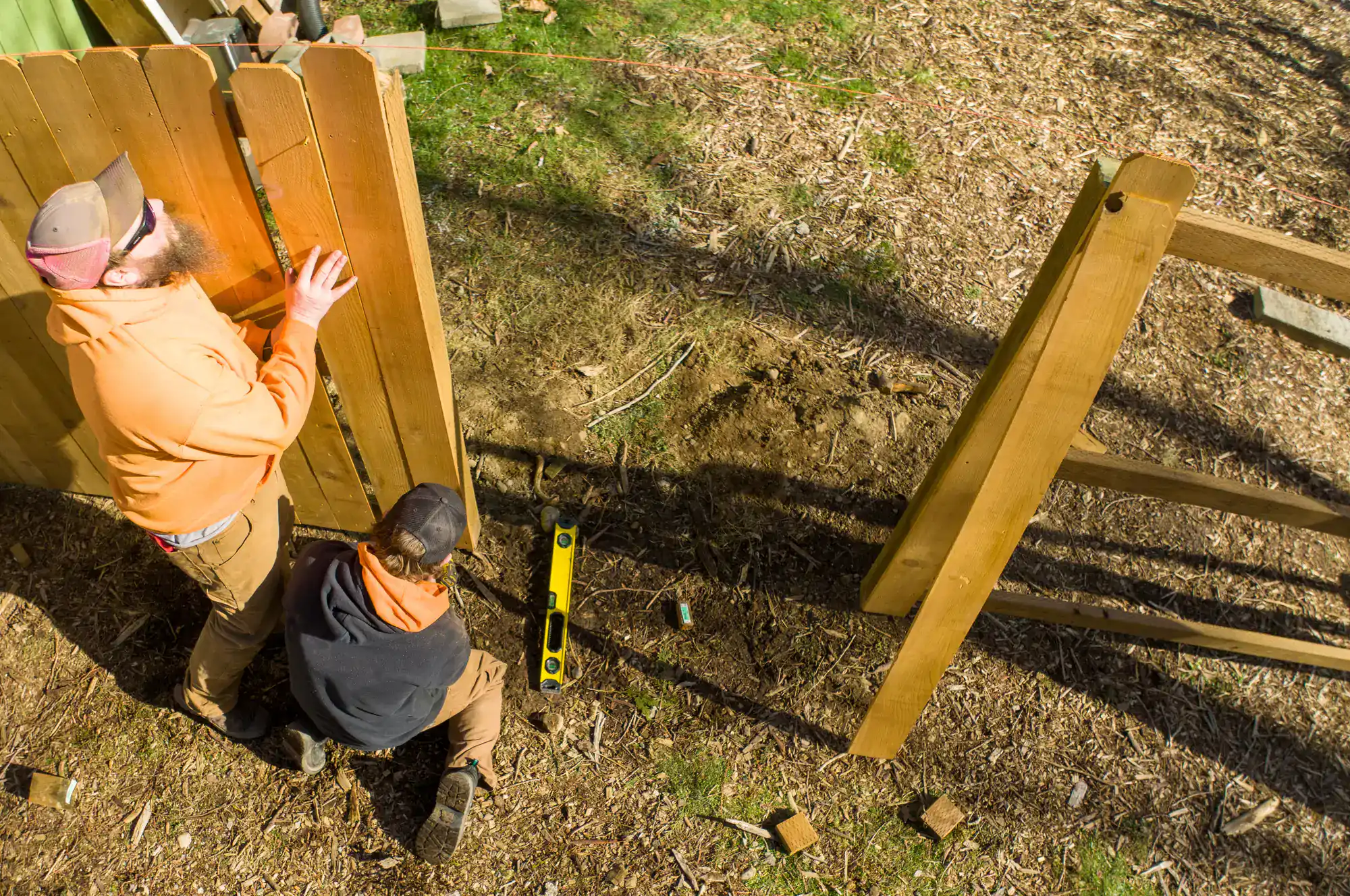
We start with an honest assessment of your property and what you’re trying to achieve. Privacy? Security? Curb appeal? All three? We’ll walk your property line and discuss options that actually make sense for your situation and budget.
Next comes material selection. We’ll show you the difference between quality materials and the cheaper alternatives—and explain why thickness, construction methods, and proper hardware matter for Long Island weather conditions.
Installation happens when we say it will. Our crews arrive on time, work efficiently, and clean up completely. We handle permits, call utility marking services, and coordinate everything so you don’t have to. When we’re done, you’ll have a fence that’s properly installed, looks great, and will protect your property for years to come.
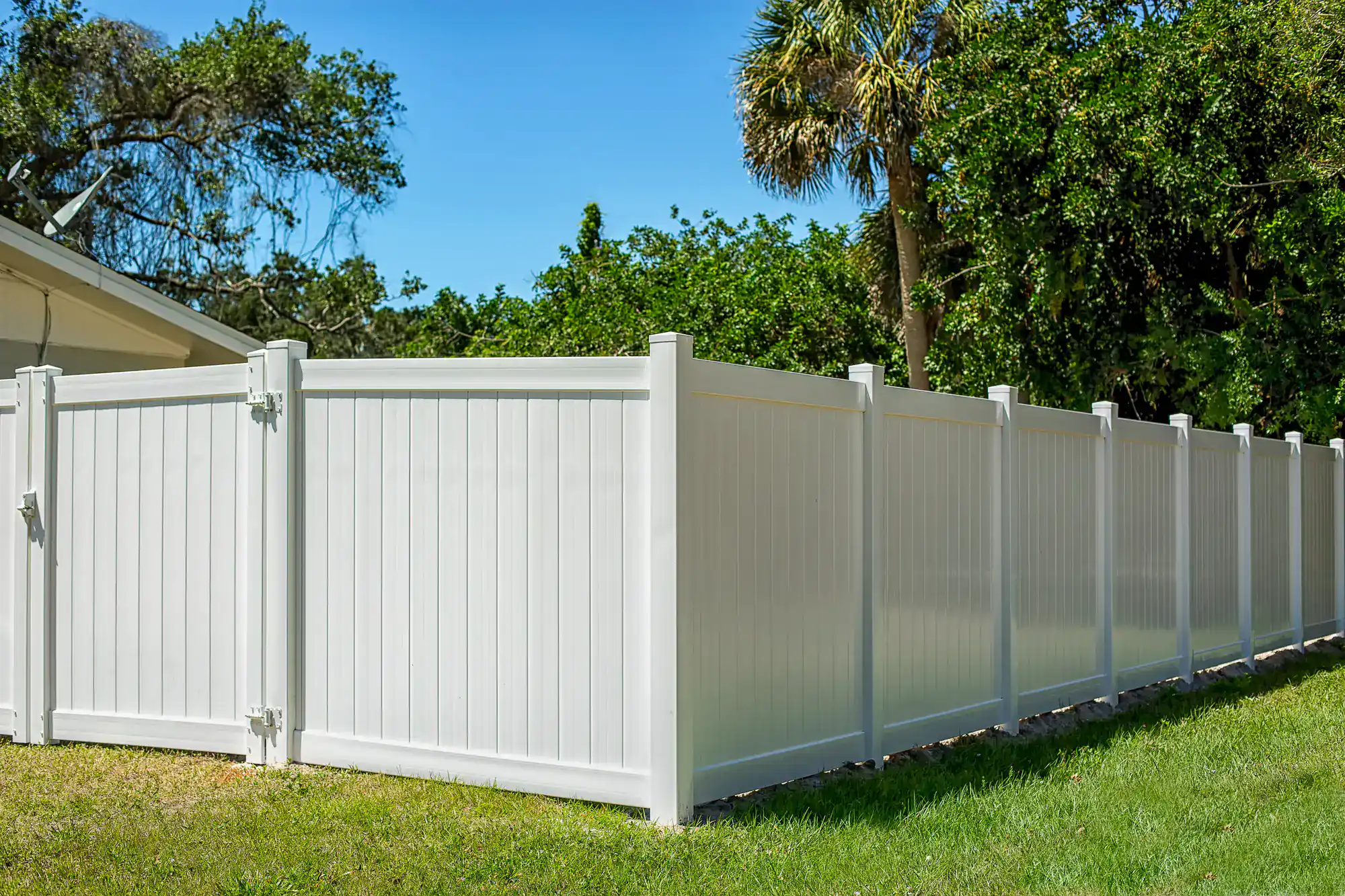
Ready to get started?
Vinyl fencing offers the durability Yaphank homeowners need with virtually no maintenance. We use virgin vinyl materials—not the recycled alternatives that can become brittle over time. Our routed systems eliminate the metal brackets that eventually stain and rust, giving you clean lines that stay clean.
Wood fencing provides natural beauty and complete customization. We use pressure-treated materials and proper construction techniques to prevent the rot, warping, and splitting that plague cheaper installations. Every board is properly spaced and secured.
Aluminum and chain link options deliver security and affordability. Our aluminum fencing resists the salt air and weather conditions common to Long Island, while our chain link installations use proper tension and quality hardware that won’t sag or separate over time.
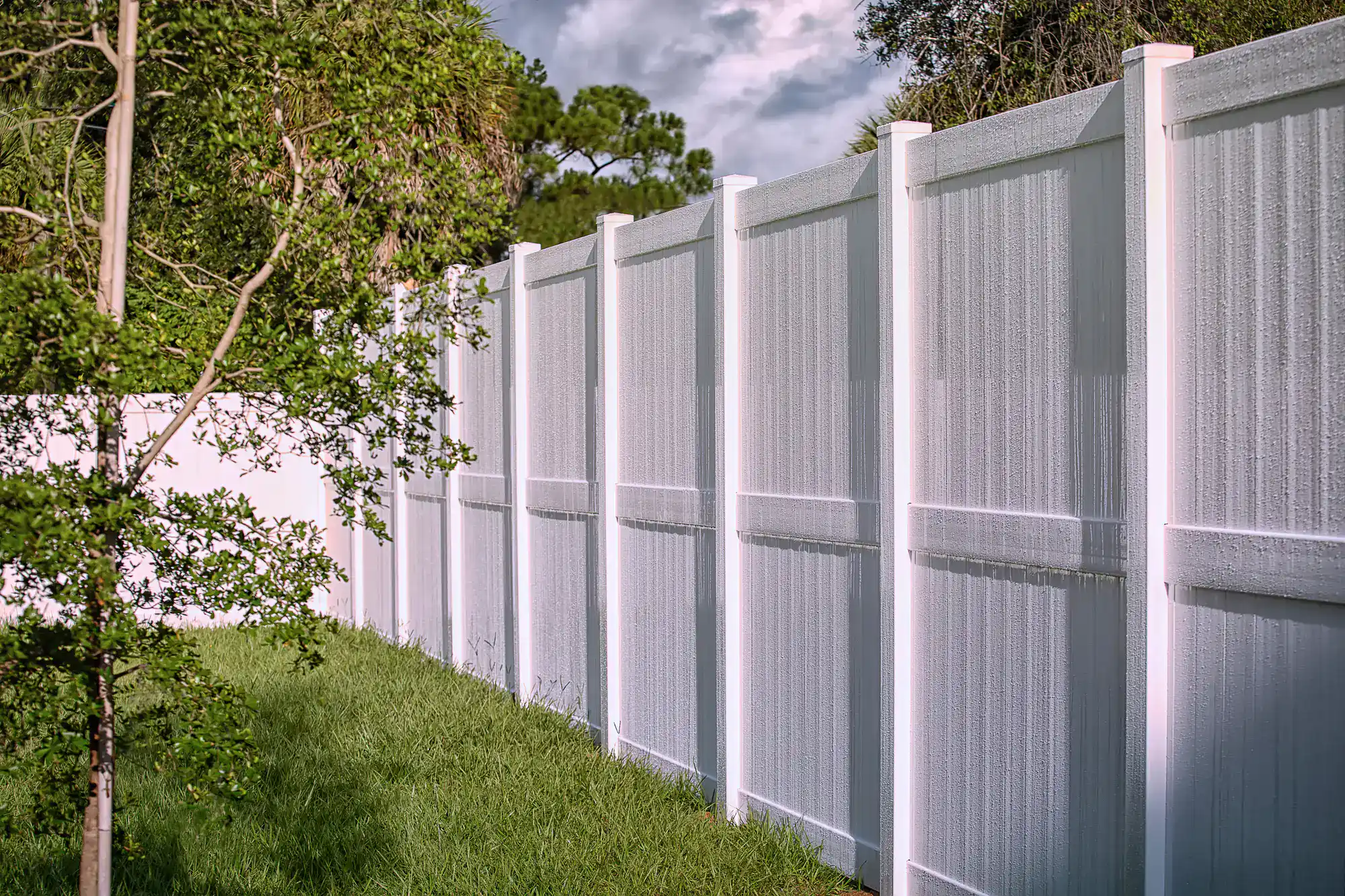
Vinyl fencing in the Yaphank area typically runs $31 to $53 per linear foot for a complete installation, depending on height and style. A 6-foot privacy fence generally costs more than a 4-foot decorative fence because of the additional materials and deeper post requirements.
The total cost depends on several factors: the length of fence you need, the number of gates, whether we need to remove an existing fence, and your property’s terrain. Rocky soil or sloped areas can add to installation time and cost. We provide detailed written estimates that break down all costs so you know exactly what you’re paying for.
Quality makes a difference in pricing. Virgin vinyl costs more upfront than recycled materials, but it won’t become brittle or discolored over time. Our routed systems eliminate the metal brackets that eventually rust and stain cheaper alternatives.
Most residential privacy fences 6 feet or shorter don’t require permits in Yaphank backyards. However, front yard fences over 3.5 feet typically do need permits, and local regulations can vary based on your specific location and homeowner association rules.
We handle permit research and applications when required. This includes checking with your local building department, reviewing any deed restrictions or HOA requirements, and ensuring your fence meets all setback requirements from property lines and utilities.
Before any installation, we also coordinate with utility marking services to identify underground lines. This protects both your property and our crew, and it’s required by law. We take care of these details so your installation proceeds smoothly and legally.
The biggest difference is in construction method and material quality. Bracketed systems use metal hardware to connect rails to posts, while routed systems have rails that slide into holes cut directly into the posts. Routed systems look cleaner and eliminate the metal components that can rust and stain over time.
Material thickness matters significantly. Residential vinyl should be at least 0.135 to 0.150 inches thick to withstand Long Island weather conditions. Thinner materials may cost less initially, but they’re more prone to cracking in cold weather and warping in heat.
Virgin vinyl versus recycled content also affects longevity. Virgin vinyl maintains its strength and color better over time, while recycled materials can become brittle and fade more quickly. We use virgin vinyl materials because they provide the durability our customers expect from a quality installation.
Most residential fence installations in Yaphank take 1 to 3 days, depending on the length of fence, terrain, and any complications we encounter. A typical backyard privacy fence around 150 linear feet usually takes 2 days—one day for post installation and one day for rails and panels.
Weather can affect timing, especially for post installation. We won’t set posts in frozen ground or during heavy rain because it compromises the installation quality. Rocky soil common in some Yaphank areas may require additional time for proper post holes.
We schedule installations when we can complete them properly, not just quickly. This means allowing adequate time for concrete to cure, ensuring posts are perfectly aligned, and double-checking that gates operate smoothly. Rushing fence installation leads to problems later—sagging, gaps, and premature failure.
Quality vinyl fencing requires minimal maintenance—occasional cleaning with soap and water is typically all that’s needed. Unlike wood fencing, vinyl doesn’t need staining, sealing, or painting to maintain its appearance and structural integrity.
For Long Island conditions, we recommend hosing down your fence a few times per year to remove salt residue, pollen, and general dirt buildup. Stubborn stains can usually be removed with a mild detergent and soft brush. Avoid pressure washing at close range, which can damage the surface.
Check gate hardware annually and lubricate hinges as needed. Inspect the fence line after severe storms for any damage from fallen branches or debris. Quality vinyl fencing should maintain its appearance and structural integrity for decades with this minimal care routine.
We can install fencing during Long Island winters, but timing depends on ground conditions and weather. Frozen ground makes post hole digging difficult and can compromise post stability, so we typically wait for soil conditions that allow proper installation.
Concrete curing is also affected by cold temperatures. We use cold-weather concrete mixes when necessary and may recommend delaying installation during extended freezing periods to ensure posts set properly and maintain their stability over time.
Winter installations are possible during milder periods, and we monitor weather forecasts carefully to schedule work when conditions allow quality installation. We’d rather wait for proper conditions than rush an installation that won’t meet our standards or provide the longevity you expect from professional fencing.